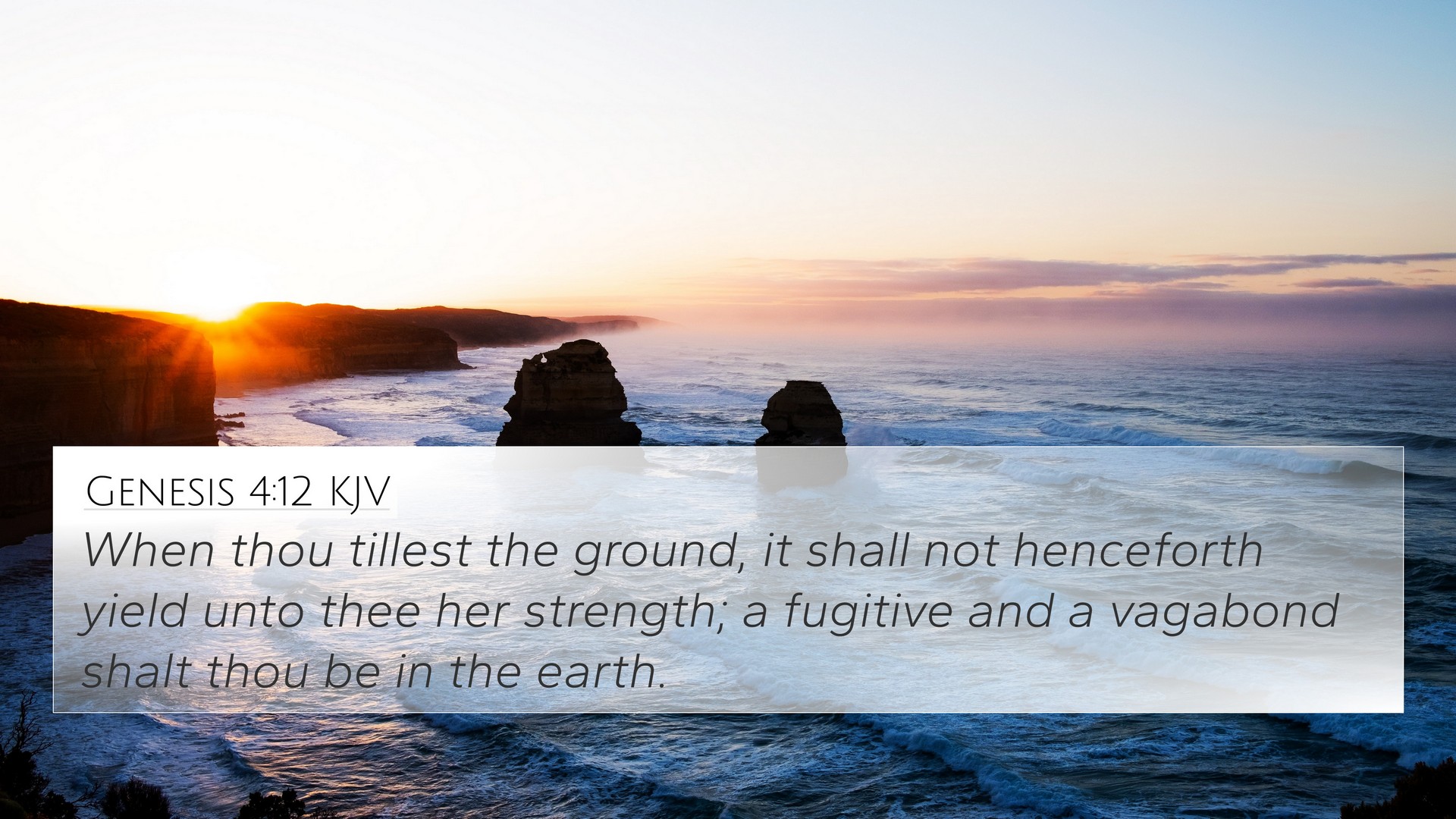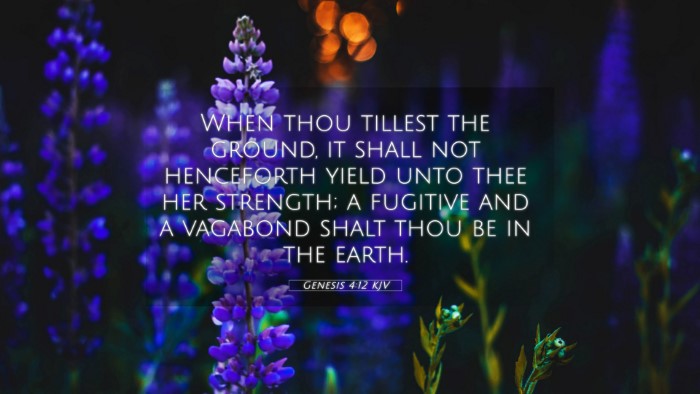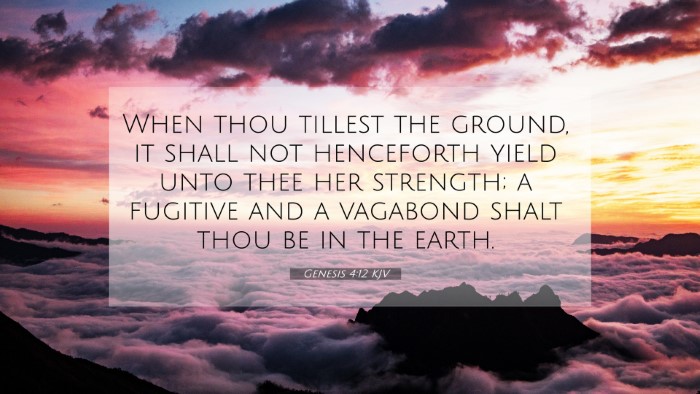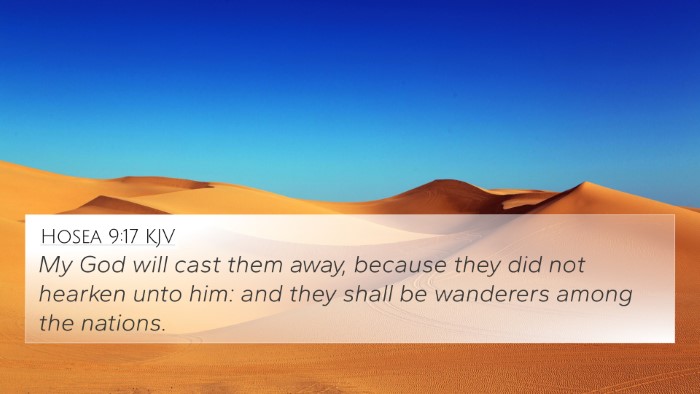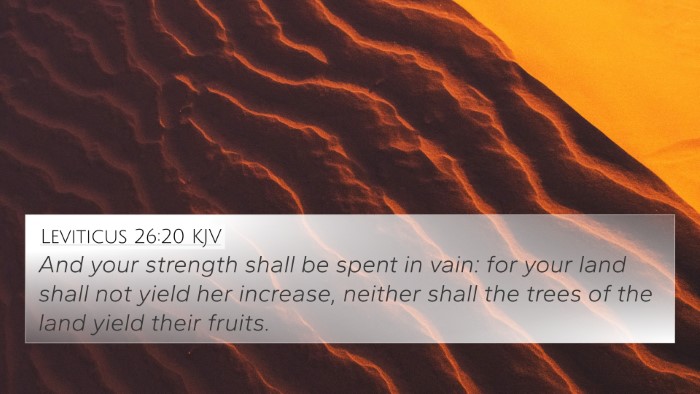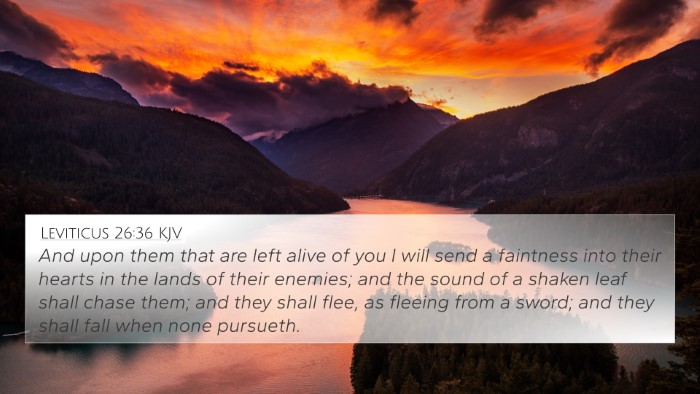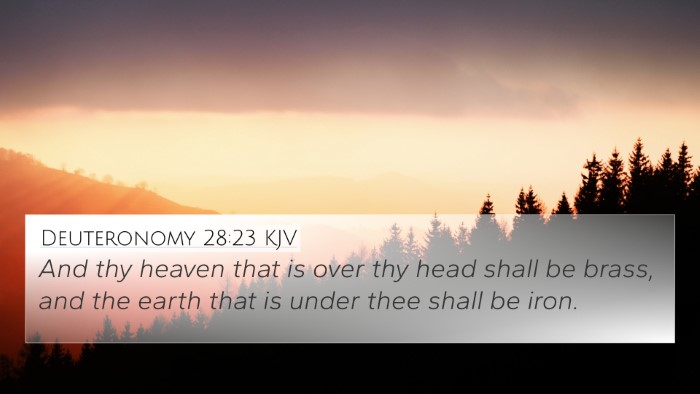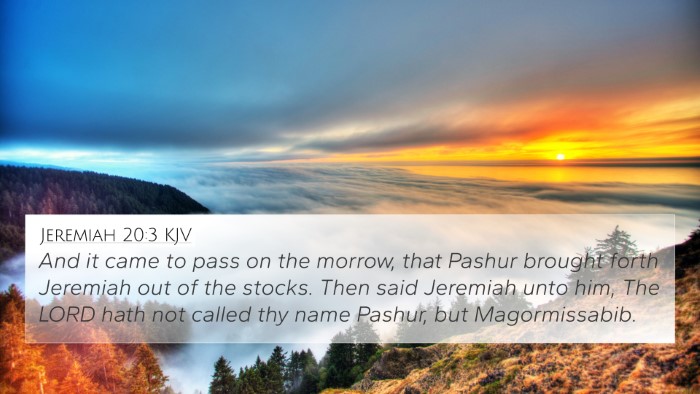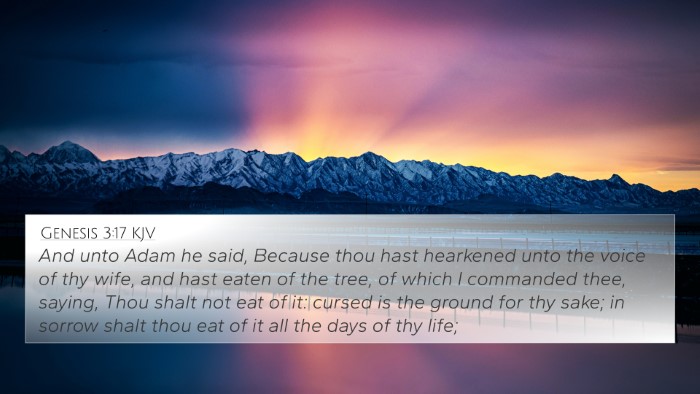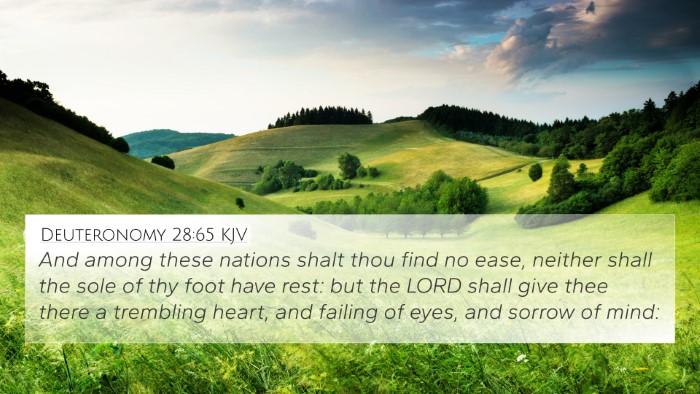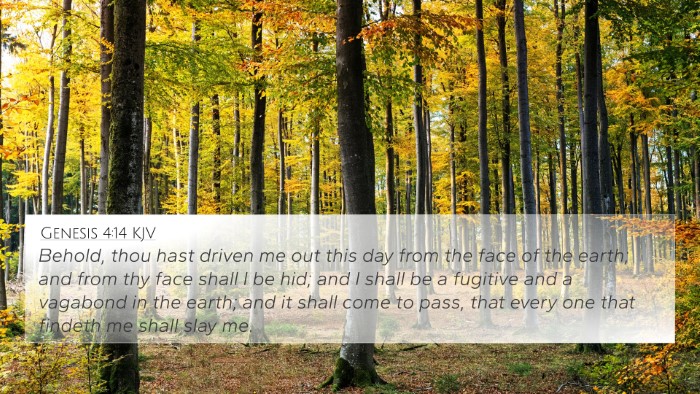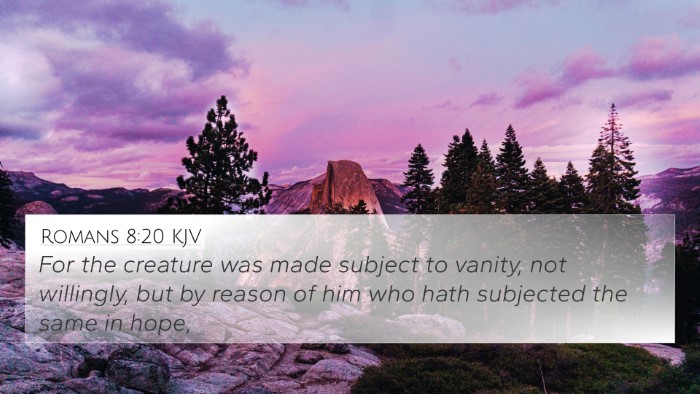Understanding Genesis 4:12
Genesis 4:12 states:
“When you cultivate the ground, it shall no longer yield its strength to you; you shall be a wanderer and a fugitive on the earth.”
This verse is a profound part of the story of Cain and Abel, illustrating the consequences of Cain’s actions after he murdered his brother Abel. Here, we explore its meaning through insights from various public domain commentaries.
Summary of Insights
According to Matthew Henry, this verse emphasizes the severe punishment that Cain faces as a result of his wrongdoing. The commentary explains that Cain's relationship with the soil, once fruitful, is now marred; he can no longer expect to reap a harvest from it. Instead, he is destined to roam the earth, symbolizing both physical and spiritual exile.
Albert Barnes adds that the phrase “you shall be a wanderer and a fugitive” reflects not only a loss of home and stability, but also a spiritual dislocation. Cain's sin has caused him to forfeit his place in the family of humankind and in God’s favor, leading to a life of aimlessness and fear. This illustrates the broader theme of the separation from God that sin brings about.
Adam Clarke notes the underlying theme of God's justice and mercy in this passage. Although Cain is punished, there is also an aspect of God’s mercy; He places a mark on Cain to protect him from being killed by others. This signifies that even in the midst of judgment, God still shows care for His creation and takes steps to preserve Cain's life.
Key Themes
- Consequences of Sin: The verse exemplifies how sin can lead to dire consequences, affecting both personal and communal aspects of life.
- Divine Justice: God's judgment upon Cain highlights the righteous nature of God in dealing with sin.
- God's Protection: Cain’s mark serves as a reminder of God’s protective nature even when one has fallen into sin.
Cross-References and Thematic Connections
This verse connects with various other scriptures, providing a richer understanding through cross-referencing biblical texts. Here are some vital connections:
- Genesis 3:17-19: God's curse upon Adam links to Cain's punishment as both deal with the consequences of sin affecting the ground.
- Hebrews 11:4: Acknowledges Abel’s righteousness, contrasting Cain's sin, and emphasizes the long-term consequences of righteousness and wickedness.
- Romans 6:23: “For the wages of sin is death,” correlates with the spiritual death Cain faces as a wanderer.
- 1 John 3:12: Discusses Cain's actions being of the evil one, reinforcing the moral implications of his sin.
- Matthew 7:2: The principle of judgment by the same measure applies here, as Cain’s actions lead to his downfall.
- Proverbs 28:13: “He who conceals his sins does not prosper,” a theme consistent with Cain's ultimate fate.
- Genesis 4:14: This verse continues the narrative, revealing Cain's fears and the reality of his punishment.
- Genesis 5:29: Suggests a longing for relief from the curse, echoing themes of redemption through lineage.
- Job 31:38-40: Acknowledges the land as a witness to one’s deeds, relevant to Cain’s curse upon the soil.
- Galatians 6:7: The principle of sowing and reaping applies here, showcasing the justice of God in punishing Cain.
Conclusion
This exploration of Genesis 4:12 reveals profound truths about the nature of sin and consequences, divine justice, and mercy. The insights gleaned from public domain commentaries illustrate how this single verse connects deeply with the overarching narrative of the Bible. By engaging in comparative Bible verse analysis and utilizing tools for cross-referencing biblical texts, we can better understand the themes and lessons that span across scripture.
Further Study
For those interested in exploring the connections between this verse and others, consider utilizing a bible concordance or a bible cross-reference guide. Engaging in cross-referencing Bible study methods can also deepen understanding, making it easier to find bible verses that relate to each other and uncover the rich tapestry of scripture.
Call to Action
As you delve deeper into the meanings and connections found in Genesis 4:12, consider how this scripture can inform your understanding of sin and redemption throughout the Bible. Reflect on what verses are related to Genesis 4:12 and allow these inter-Biblical dialogues to enrich your faith journey.
